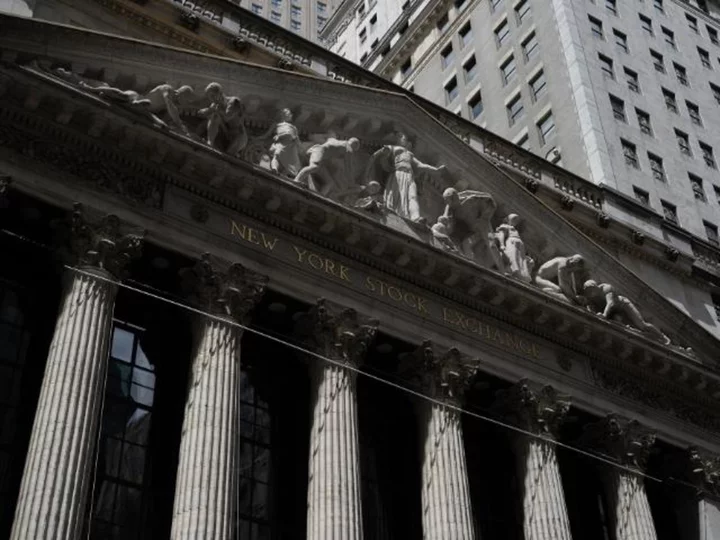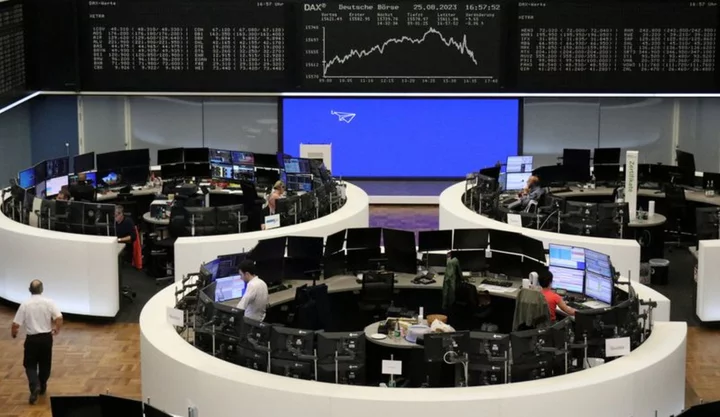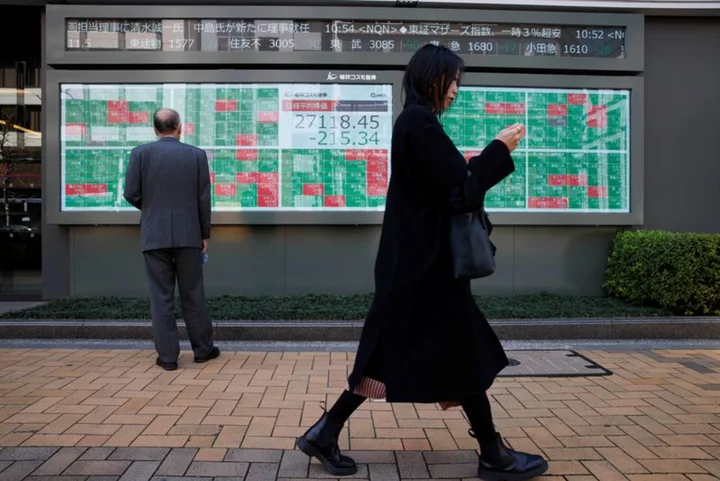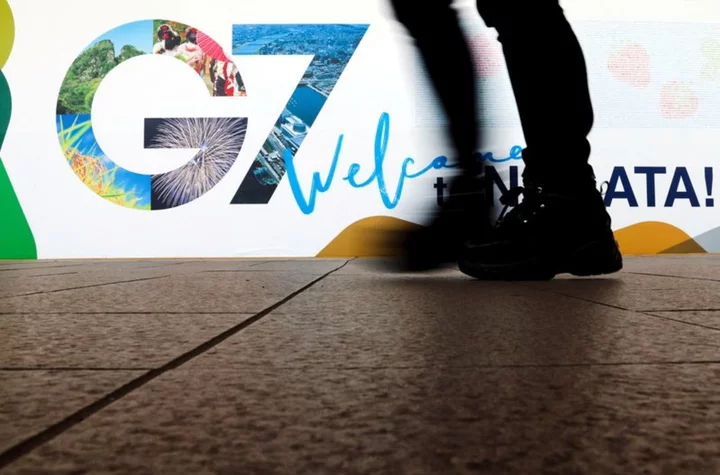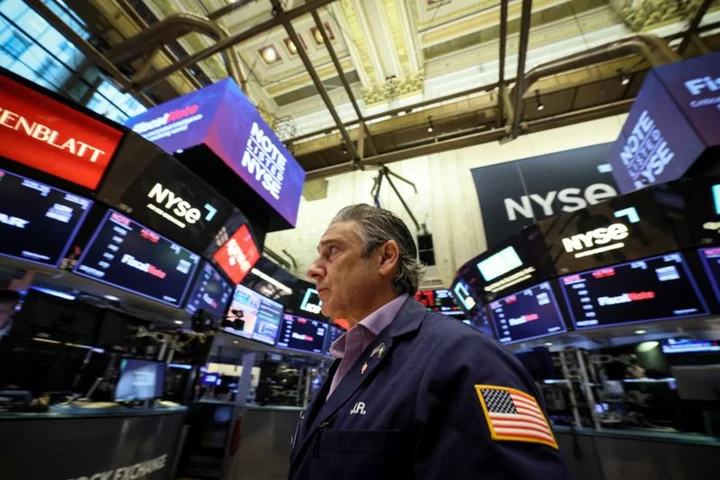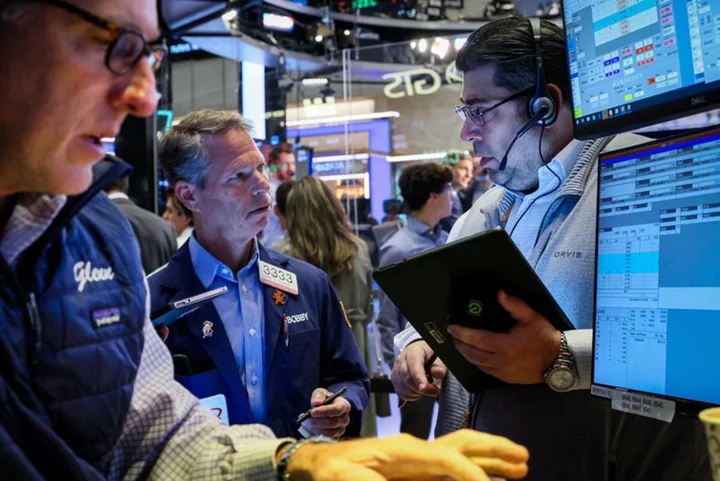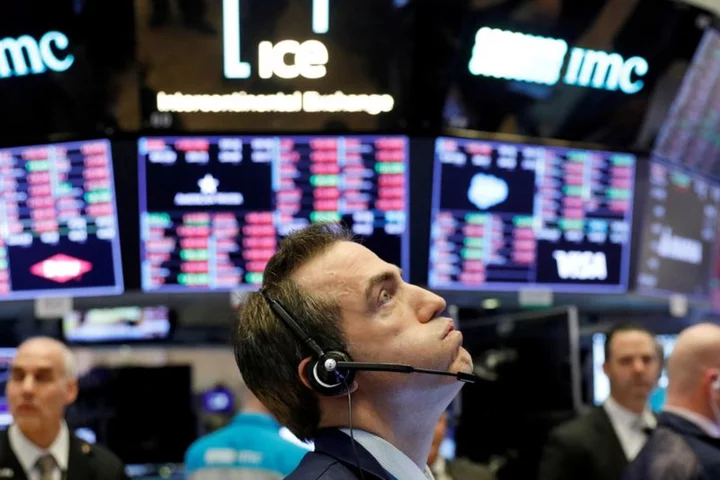Moody's on Monday evening downgraded 10 US banks and put the credit ratings of six others on review, an indication that the agency could also eventually downgrade those institutions.
Some investors say that while the Moody's downgrade isn't groundbreaking, it's a reminder that the economy, and markets, still have challenges ahead.
What happened: Bank stocks and the broader market tumbled after Moody's announcement. The Dow Jones Industrial Average index fell 159 points, or 0.5%. The S&P 500 slipped 0.4% and the Nasdaq Composite lost 0.8%.
JPMorgan Chase shares lost 0.6%, Wells Fargo declined 1.3% and Goldman Sachs fell 2.1%. The SPDR Regional Banking exchange-traded fund, which tracks a number of small and mid-sized bank stocks, lost 1.3%.
The banks whose ratings the credit agency is reviewing include BNY Mellon, Northern Trust, State Street, Cullen/Frost Bankers, Truist Financial and US Bank.
Moody's downgraded Commerce Bank, BOK Financial, M&T Bank, Old National Bank, Prosperity Bank, Amarillo National Bank, Webster Financial, Fulton Financial, Pinnacle Financial and Associated Bank.
The agency's actions reflect "ongoing strain in the US banking sector, including increased funding pressures and potential regulatory capital weaknesses," Moody's said.
The credit rating agency also changed its outlook to "negative" from "stable" for PNC Financial Services, Capital One Financial, Citizens Financial, Fifth Third Bank, Huntington Bank, Regions Financial, Cadence Bank, FNB Corp, Simmons First National, Ally Financial and Bank OZK.
Why does that matter? The downgrades come after the collapses of Silicon Valley Bank and Signature Bank in March raised concerns about how tightening credit conditions could slow economic growth and potentially trigger a downturn.
Wall Street largely breathed a sigh of relief in recent months after the Federal Reserve said that the banking sector remains stable and regional banks noted that deposit outflows have stabilized.
Investors have also become increasingly optimistic that the Fed could soon end its rate hiking cycle and that the economy could avoid a recession. Recent weeks have seen cooler economic data indicating a more moderate pace of growth.
But banks continued to tighten their lending standards, making it harder for households and businesses to borrow money and pressuring economic growth.
"Investors have been happy to ignore (tightening credit standards), and this brings the issue back to the fore," said Kara Murphy, chief investment officer at Kestra Investment Management.
Will the sell-off last? Much like when Fitch downgraded the US sovereign credit rating last week, Wall Street likely used Moody's downgrades as an excuse to sell, some investors say.
"We were due for a correction," said Christopher Marinac, director of research at Janney Montgomery Scott, noting that Moody's downgrades didn't tell investors anything new.
As a result, the sell-off likely won't last beyond a couple days, if that, especially as investors turn their attention to the Consumer and Producer Price Indexes for July later this week, according to Marinac.
Wall Street firms fined $549 million for using WhatsApp and other channels
Wells Fargo is among a number of Wall Street firms that admitted Tuesday to using WhatsApp, Signal and other messaging platforms for "off-channel" communications in violation of federal recordkeeping requirements.
The Securities and Exchange Commission said the Wall Street firms acknowledged wrongdoing and have agreed to pay penalties totaling $289 million, reports my colleague Matt Egan.
The SEC said its investigation uncovered "pervasive and longstanding 'off-channel' communications" at Wells Fargo, BNP Paribas, SG Americas, BMO Capital Markets, Mizuho Securities, Houlihan Lokey, Moelis, Wedbush and SMBC Nikko Securities America.
According to regulators, those firms admitted that from at least 2019, their employees often communicated about business through WhatsApp, iMessage, Signal and other messaging platforms on their personal devices.
The SEC said the firms violated federal securities laws by failing to maintain or preserve the "substantial majority" of these communications.
Read more here.
Americans' credit card debt hits a record $1 trillion
Americans' credit card debt levels have just notched a new, but undesirable, milestone, reports my colleague Alicia Wallace.
For the first time ever, they've surpassed $1 trillion, according to data released Tuesday by the Federal Reserve Bank of New York.
During the second quarter, credit card balances shot up by $45 billion, or nearly 4.6%, to land at $1.03 trillion, according to the New York Fed's latest Quarterly Report on Household Debt and Credit.
Rising credit card debt and auto loan balances helped to drive overall household debt levels up 1%, to $17.06 trillion for the quarter, the report showed.
Overall household debt has spiked by $2.9 trillion since the end of 2019, before the pandemic. The New York Fed's debt balances are not adjusted for inflation.
Read more here.

